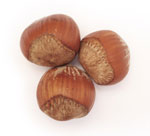Guiding patients online is a new physician responsibility for the digital age.
Posted by: admin on: July 7, 2011
- If you woke up one day with an earache, you could call your doctor’s office for help. Or you could do what the majority of patients do today and Google what to do first. Type “earache” into your Web browser and the results can vary wildly. Search engines can return results saying that an earache can be from the common cold, needing nothing more than over-the-counter remedies. Or it could be a sign of a brain abscess, which requires emergency medical attention.
- Only 7 percent of doctors e-mail their patients. A recent international health survey conducted by the London School of Economics found that only one in four checked the reliability of online health advice. When you consider that nearly two-thirds of patients are consulting the Internet for their medical symptom or condition, that’s a lot of patients accepting what they read on the Internet at face value.
Read the rest of this entry »
Experts Issue Guidelines on Care of Clogged Neck Arteries
Posted by: admin on: July 7, 2011
Ultrasound scans should only be used for patients at high risk of stroke, advisory says
- There isn’t sufficient evidence to recommend widespread screening or routine ultrasound tests to check for blocked neck arteries that could cause a stroke.
- That’s one key finding from new guidelines on the care of the clogged arteries, released Jan. 31 by the American Heart Association, American Stroke Association and other groups.
- A person’s risk of stroke increases when blood flow to the brain is reduced due to clogging of the carotid arteries on the sides of the neck or the vertebral arteries alongside the spine.
- While there is no proof that routine screening for blocked neck arteries offers any benefit, “if your doctor hears abnormal blood flow when listening to your neck arteries, or if you have two or more risk factors for stroke (such as high cholesterol or a family history), then [ultrasound testing] is a reasonable approach,” guidelines writing committee co-chair Dr. Jonathan L. Halperin, a professor of medicine at the Mount Sinai School of Medicine in New York, said in an American Heart Association/American College of Cardiology news release.
- The new guidelines also state that carotid stenting (the placement of an artery-opening mesh tube inside the vessel) and carotid endarterectomy (surgical scraping of plaque from artery wall) are both reasonable and effective ways to open neck arteries that are more than 50 percent blocked.
- The guidelines also stress that for many patients, medications may remain a better approach than either carotid stenting or carotid endarterectomy.
- The guidelines will be published in the journals Stroke and Circulation and in the Journal of the American College of Cardiology.
Taxing soft drinks to combat obesity
Posted by: admin on: July 7, 2011
One commonly heard propositions to combat the obesity epidemic is to tax soft drinks. No doubt, sugary soft drinks are a common and important source of “empty” calories, but will taxing soft drinks really reduce obesity rates?
This assumption was now examined by Yale University’s Jason Fletcher and colleagues, in a paper just published in Contemporary Economic Policy.
The researchers collected information on taxation of soft drinks with respect to specific excise taxes on soft drinks and other snack taxes, general state sales taxes, and special soft drink exceptions to food exemptions from sales taxes in several US States between 1990 to 2006. Height and weight data was used from the representative NHANES III data set.
Using complicated models accounting for a variety of potential confounders, the authors confirmed that state soft drink taxes have a statistically significant impact on behavior and weight; however, the magnitude of the effect is surprisingly small.
Safe Use of Drugs Requires Reports from Clinicians
Posted by: admin on: July 6, 2011
Karen Weiss, MD, MPH, Program Director for the US Food and Drug Administration’s (FDA’s) Safe Use Initiative in the Center for Drug Evaluation and Research
Although precise figures are difficult to determine, studies suggest up to 50% of the harm from medications is preventable, which translates into about 1.5 million preventable adverse drug events each year!
The Safe Use Initiative complements FDA’s more traditional regulatory activities, which include drug approval, postmarket surveillance, and those recently authorized by Congress to require drug manufacturers to develop Risk Evaluation and Mitigation Strategies (REMS) to enhance safety.
Stroke Survivors Likely to Develop Medical Comorbidities
Posted by: admin on: July 6, 2011
- Stroke survivors are at a significantly increased risk of developing health problems that can impact their daily life even if they have experienced only a single stroke and are still living in the community, according to an analysis of the Health and Retirement Study.
- Physicians, caregivers, and rehabilitation providers need to pay particular attention to these comorbid conditions, particularly in light of the aging population and increased number of stroke survivors, said Dr. Divani, director of stroke research at the University of Minnesota Medical Center in Fairview.
- Dr. Divani and his colleagues used the database to conduct a longitudinal study of health problems in stroke survivors. We collected information on 631 stroke subjects who were noninstitutionalized.
- Diabetes, pain, hypertension, and vision and hearing impairment were all significantly more common among stroke survivors. Significantly more survivors (15% vs. 6%) also needed a proxy respondent to complete the interview. This suggests that stroke survivors were unable to answer questions, hold the phone, or participate in a face-to-face interview. Read the rest of this entry »
Search
- drchasrani: Difficult to get such a data, authenticated at that. Try Times of India online library
- rakesh pore: hi, where can i get genuine information about "10 most common drugs sold in india?" i want it for a local project
- nilesh dutta: sir, Plz give detail about MBA Sports Management Thanks and Regards

